eden ahbez and Nature Boy
_____________________________________
page originally published on 18 February 2011; latest edit: 8 March 2020
_____________________________________
Nature Boy (eden ahbez)
The song was first recorded by Nat King Cole on 22 August 1947 with a studio orchestra. It was released on 29 March 1948 and became a big hit beginning in mid-May, topping the Billboard Best Sellers in Stores singles chart for seven weeks.
Regarding how Nat King Cole came into possession of a manuscript of the song, in comments on this page eden ahbez biographer Brian Chidester said, in January 2013:
There are about twenty newsprint items from the summer of 1948 citing Otis Pollard, Nat Cole’s valet, as being the person ahbez spoke to and the one who handed the music off to Cole in 1947. And these same articles state that Otis Pollard was allotted 12.5% of the publishing for his role in the handoff. [read more]
and
Here’s the thing: The mythology changed a lot over the years and details were added by friends and family members of both Cole and ahbez long after the event. What I found, in going back to the original press write-ups from the spring/summer of 1948, is that Otis Pollard was the name attached to the manuscript hand-off in almost every instance and Irving Berlin was the celebrity artist who supposedly heard Cole perform “Nature Boy” in a nightclub before recording it and had his company buy the publishing. [read more]
From the eden ahbez bio at Space Age Pop Music:
Cole and Capitol didn’t know what to make of the song, so they sat on the record for months. Meanwhile, word-of-mouth about the tune began to grow from Cole’s live performances, and eventually Cole realized the record should be released. Unfortunately, no one had bothered to secure the rights to the song, and [Cole’s manager Mort] Ruby went off on a hunt to locate Ahbez. Legend has it that he found Ahbez and his wife camped out below the first “L” in the “HOLLYWOOD” sign. It turned out that Ahbez had given a half dozen people different shares of the publishing rights, and he ended up with virtually nothing. (After Cole died, his wife eventually gave the rights in toto back to Ahbez.)
From the Wikipedia song profile:
The song tells a fantasy of a “strange enchanted boy… who wandered very far” only to learn that “the greatest thing… was just to love and be loved in return”. Nat Cole’s 1948 recording of the song was a major hit, and “Nature Boy” has since become a pop and jazz standard, with dozens of major artists interpreting the song.
The first two measures of the song’s melody parallel the melody of the second movement in Antonín Dvořák’s Piano Quintet No. 2 in A, Op. 81 (1887). It is unknown if Ahbez was familiar with Dvořák’s piece, or if he arrived at the same melodic idea independently.
Yiddish theater star/producer Herman Yablokoff, in Memoirs of the Yiddish Stage, claimed that the melody to “Nature Boy” was plagiarized from his song “Shvayg, Mayn Harts” (“Hush, My Heart”), which he wrote for his play Papirosn (1935).[1] Ahbez protested his innocence, claiming to have “heard the tune in the mist of the California mountains,” but later agreed to pay Yablokoff $25,000 in an out-of-court settlement.[2]
The Herman Yablokoff biography at Milken Archive of Jewish Music makes the following claim:
The tune of his [Yablokoff’s] song “Shvayg mayn harts” (Be Still, My Heart) became popular in English as “Nature Boy” when it was allegedly appropriated by a Hindu mystic in California who dabbled in songwriting.
_____________________
 Regarding “Shvayg, Mayn Harts,” also spelled “Schweig Mein Hertz”:
Regarding “Shvayg, Mayn Harts,” also spelled “Schweig Mein Hertz”:
You may read details regarding the Yablokoff claim in a biographical sketch of eden ahbez by Brian Chidester, titled A Strange Enchanted Boy, published in the Chidester blog Eden’s Island.
In the ahbez bio, Chidester treats Yablokoff’s claim with careful consideration and mentions a perennial growth of theories as to the song’s origins, “most agreeing that its basis in Eastern European folk music is mercurially concrete.” Glaringly absent from the case in favor of Yablokoff’s claim are recordings. There may not be any. I’ve been unable to find a recording of Yablokoff’s song, though I did come across one site which claims to possess “a copy”, perhaps meaning sheet music (which I’ve also failed to find a trace of), without producing any evidence of the same. Chidester noted in the 2006 version of his ahbez bio, “To this day, the song “Sveig Mein Hartz” has never been recorded by any professional singer or act, including Yablokoff himself.”
____________________________
Nat King Cole Trio with orchestra conducted by Frank DeVol – recorded at Radio Recorders in Hollywood California on 22 August 1947 — Issued 29 March 1948 on the single Capitol Records 15054, b/w “Lost April,” it spent seven weeks at #1 on Billboard’s Best Sellers in Stores chart from 15 May to 26 June that year.
session personnel (from jazzdisco.org): Nat King Cole (piano, vocals) Buddy Cole (celeste) Oscar Moore (guitar) Johnny Miller (bass) unidentified reeds and strings, Frank DeVol (arranger, conductor)
.
.(below) perhaps from The Nat King Cole Show, 1956-57. IMDb lists some of the episodes and songs performed in them, but I don’t find this one.
.
(below) from the 1961 album The Nat King Cole Story
.
Frank Sinatra with The Jeff Alexander Choir – recorded 10 April 1948; arrangement by Jeff Alexander
.
Miles Davis Quintet – recorded at Audio-Video Studios, NYC, 9 July 1955
Miles Davis: trumpet, Britt Woodman: trombone, Teddy Charles: vibes, Charles Mingus: bass, Elvin Jones: drums
.
Stan Getz – recorded in Baden-Baden, West Germany, March 1960; released on the 1961 LP Cool Velvet: Getz And Strings, Verve Records V6-8379 (Mono), MG VS 68379 (Stereo)
Stan Getz: tenor sax, Blanchie Birdsong: harp, Dave Hildinger: vibes, Jan Johansson: piano, Freddy Dutton: bass, Sperie Karas: drums, unidentified strings, Russ Garcia: arranger, director
.
Stan Getz – recording data unknown
.
Grace Slick & The Great Society – recorded in 1966; released on their second album How It Was, 1968
The track reappeared on the 1971 collection Collector’s Item, which was simply a combination of the 9 tracks from their first album and the 8 tracks of the second album, in the same order except that the second album’s tracks appear first. The Great Society disbanded in late 1966 when Grace Slick left to become the lead singer of Jefferson Airplane, replacing the departing Signe Toly Anderson, who left the Airplane for personal reasons.
.
Gandalf – from their self-titled 1969 album
.
.
Flip Phillips – second track on the 1975 LP Spanish Eyes, his first album as a leader in a dozen years, according to a review at All Music. Flip Phillips: bass clarinet, Mickey Crane: piano, Milt Hinton: bass, Mousie Alexander: drums
.
Abbey Lincoln – from her 1995 CD album A Turtle’s Dream, (US) Verve Records 314 527 382-2, Gitanes Jazz Productions 314 527 382-2
personnel on this track:
Abbey Lincoln – vocals
Charlie Haden, Christian McBride – bass
Victor Lewis – drums
Rodney Kendrick – piano
Julien Lourau – tenor saxophone
Roy Hargrove – trumpet
.
John Hassell – leading track on his 1999 CD album Fascinoma, Water Lily Acoustics WLA-CS-70-CD
Reviewer Stephen Thomas Erlewine at All Music wrote:
Hassell has intended the album as a tribute to the “musical exotica” he heard as a child “on the radio or in movie scores,” and his statement unlocks many doors to his music. Echoes of early exotica and evocative jazz can be heard throughout the album, but Hassell pieces it together in an odd, original fashion. [read more]
.
Will-o-the Wisp – The track, from the neo-prog band’s 2007 LP A Gift for Your Dreams, Sound Effect Records SER 011, seems clearly in debt to 1970s-era Genesis and Pink Floyd to me, although Discogs.com says of the band: “Their sound is heavily influenced by the British progressive underground scene of the early 70s and bands such as ‘Caravan‘ and ‘Curved Air‘.”
.
Pomplamoose – posted 16 August 2009
.
Some say that the inspiration for the character described in the song was a “fellow tribesman” of eden ahbez among a loosely tied group known as “Nature Boys,” Robert “Gypsy Boots” Bootzin. Bootzin himself claimed to have been the inspiration. However, ahbez biographer Brian Chidester, in a comment on this page dated 2013/01/06 at 9:22 am, writes
I know Gypsy Boots claimed throughout his life that he, not ahbez, was the inspiration for “Nature Boy.” To that end, ahbez told friends over and over that Boots was a phony.
In the photos above Bootzin stands leftmost, top row. Below, Bootzin appears as a guest in a 1955 episode of You Bet Your Life, winning the admiration of Groucho Marx (who was usually intolerant of extremists) for being a “rugged individualist.”
.
 Gypsy Boots may have been an influence, but Chidester indicates that a principle mentor to ahbez was an earlier pioneer in the raw foods, and natural lifestyle movement in America, Bill Pester (pictured at right in front of his palm log cabin at Palm Canyon, California in 1917):
Gypsy Boots may have been an influence, but Chidester indicates that a principle mentor to ahbez was an earlier pioneer in the raw foods, and natural lifestyle movement in America, Bill Pester (pictured at right in front of his palm log cabin at Palm Canyon, California in 1917):
Ahbez would sleep outdoors in Topanga Canyon and often went off with his Nature Boy pals to the desert caves of Tahquitz Canyon, near Palm Springs. It was in Tahquitz Canyon that Ahbez would encounter his mentor, Bill Pester, a German immigrant who taught radical philosophies of the day, including nudism and natural medicine. It is likely that Ahbez also discovered Eastern philosophy and mysticism during this period, adopting the name “eden ahbez” (and choosing to spell his name with lower-case letters, claiming that only God was worthy of capitalization). For more information on the pre-hippie movement in Germany and Southern California, Gordon Kennedy’s Children of the Sun* is a primary text.
eden ahbez: selected biographies, tribute sites, and articles
- Eden’s Island, a blog about eden ahbez — by Brian Chidester
- A Strange Enchanted Boy — biographical sketch of eden ahbez by Brian Chidester, published in the blog Eden’s Island
- Space Age Pop Music
- Joe Romersa’s eden ahbez tribute page
- Wikipedia
- Songbook’s eden ahbez gallery
_____________________________
* In a review of Gordon Kennedy’s book Children of the Sun, John Savage wrote:
Another crucial figure was Bill Pester (b 1886) who fled from Germany to the US in 1906 to avoid military service. A confirmed naturmensch, he lived with the Cahuilla Indians in the Coachella Valley – where he had an organic farm. It was meeting Pester that changed the life of Eden Ahbez (b 1908): a born wanderer from an early age, he settled in California during the late 30′s, part of a group of ‘nature boys’ that congregated around John and Vera Richter’s live-food cafe, Eutropheon, in Los Angeles.



























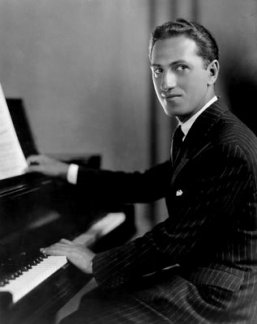

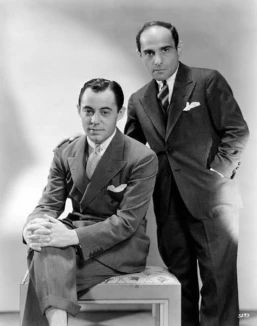

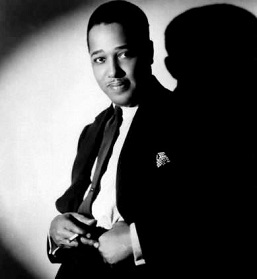


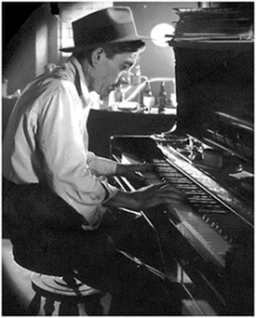
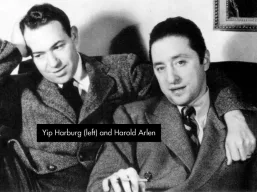
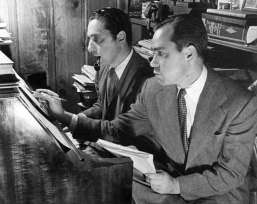



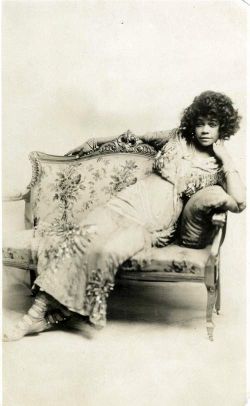





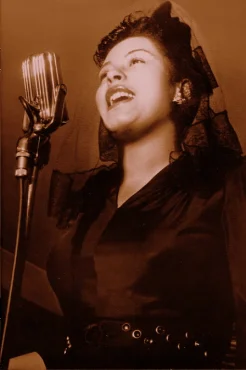




Sep 08, 2012 @ 05:52:26
eden ahbez told Me that Hindu Saint, Paramhansa Yogananda, sat Him on His lap and, in front of some assembled Disciples said, “This boy has no karma.” Surprised and later unsettled by this comment because He thought this separated Him from the other devotees,
I walked across the country singing this song. It has supported Me for the rest of My life.
Gypsy Boots and others have claimed to be the inspiration for Nature Boy but eden was very specific and very grateful.
LikeLike
Sep 08, 2012 @ 19:54:36
Hi David,
Thanks, but with “an antenna of irrefragable insight” I sense likely anecdotal embellishment.
LikeLike
Jan 05, 2013 @ 16:24:00
Did I write that the lineage from “Sveig Mein Hartz” to “Nature Boy” was “mercurially concrete” somewhere on the internet? If so, I remember it not. But I’d say that is probably the best word to use for the melody, since “mercurially” suggests causality and even thievishness, both of which that melody seems to contain. When I had an ethnomusicologist play it for me on piano (from the sheet music), she pointed out that such a melody was typical of Eastern European folk balladry for many centuries and that its sequestering by the overlords of 20th Century copyrighting, as usual, laid claim to something that originated with neither of these very interesting characters (Yablokoff and ahbez).
LikeLiked by 1 person
Jan 05, 2013 @ 21:17:24
Brian,
Regarding the phrase “mercurially concrete,” you say,
It is not the melody which was described as “mercurially concrete,” but rather the consensus (of theories as to its origins) that the song is a derivative of the European folk music tradition.
Here’s the relevant quote from my article:
First of all, the cited article, Eden Ahbez Bio by Cafe L.A. on Myspace, is presently dated March 17, 2012, whereas I quoted from it in February 2011, almost two years ago. It was evidently modified in the interim. In fact, I vaguely recall seeing the bio at two distinct sites c. February 2011, so I might have quoted from two separate versions of it without noticing the variance.
Whether the phrase “mercurially concrete” is an appropriate one is a minor question, which I’ll come back to. More significantly, I think the relevant section of the bio convincingly exposes Yablokoff’s claim of copyright as a very weak one, presuming your summary of the facts is accurate. Where’s the evidence to corroborate his claim?
The speculation that ahbez might have come into contact with the Yiddish theatre during a period when he lived in New York in the late 30s seems like grasping at straws, clinging to a remote possibility which might lend a splinter of support to a feeble case.
On the other hand, the evidence favoring some aspects of ahbez’s story appears quite strong, though not ironclad. Variant and possibly conflicting details as to who gave the manuscript to which employee of Nat King Cole, and who handed it to Cole himself, might hamper attempts to accurately reconstruct events precisely as they occurred. For example, your article says,
However, these points only address the chain of possession of the manuscript, and not the writing of it which is the main area of contention.
I’m far from convinced that the number came mystically to ahbez in a cave, and I would probably tend to side with the musicologist you mention if forced to cast a vote. However, until someone traces the song to a specific traditional precedent (or two), then ahbez’s claim to authorship will probably continue to stand, and rightly so.
Getting back to “mercurially concrete.” I do not find that phrase in the present version of your eden ahbez bio at my source, and will be glad to remove it if you wish. Common synonyms for mercurial include capricious, changeable, fluctuating, impermanent, unstable. That’s the sense of the word I had in mind when reading it. Concrete, with respect to evidence or information, means solid, substantial, factual. They aren’t exactly opposites (an oxymoron when combined), but when paired together it’s hard to escape the impression that the sense of fluidity denoted by the former word has been juxtaposed against the sense of solidity suggested by the latter. I presumed that you had used the phrase for ironic effect, but wasn’t quite sure of your intention or meaning.
LikeLike
Jan 05, 2013 @ 21:34:04
The Wikipedia is just flat out wrong. Wherever Mercer came into the story (if at all), it’s not at the Lincoln Theatre. There are about twenty newsprint items from the summer of 1948 citing Otis Pollard, Nat Cole’s valet, as being the person ahbez spoke to and the one who handed the music off to Cole in 1947. And these same articles state that Otis Pollard was allotted 12.5% of the publishing for his role in the handoff.
You’ll find there’s a lot of mis-information floating around about eden ahbez. Just even getting the Lincoln Theatre correct took a lot of digging, as each King Cole biography and each ahbez mini-bio, blog or liner note seems to place him at a different L.A. club. Especially common was the Orpheum Theater, which, I went through every single Cole booking in 1947 prior to Cole recording the actual song and the only time he was in L.A. was in the spring for a 3 week gig at the Lincoln. Sheet music exists from 1946 for ahbez’s “Nature Boy,” but in that self-published version, the lyrics are entirely different. They start with: “There was a boy and they called him nature boy…”
From there it’s a ramble, not even close to the finished 1947 version and not inclusive of the famous line: “To love and be loved in return.” Knowledge up to this point regarding the writing and recording of “Nature Boy” has been mostly factually inaccurate and greatly mythologized. I’ve updated a few of my blog posts to be factually correct, but as I’ve collected over 500 pages of research on just that song alone, I’ve chosen not to try and surmise that information for an online blog, but rather to pursue a publishable biography on ahbez’s entire life. That being said, there’s nothing factually untrue on the current version of the Cafe L.A. MySpace blog post.
Hope that clarifies a little.
LikeLiked by 1 person
Jan 06, 2013 @ 03:08:44
____________________________________________
This post was revised, for the sake of simplicity, on 13 June 2017, and again on 19 June 2017.
____________________________________________
Under the heading “Career” in the eden ahbez article, Wikipedia says (no source cited),
There is no indication by Wikipedia that Mercer was anywhere near the Lincoln. Perhaps Mercer or Capitol suggested that ahbez send or deliver a copy of the manuscript to Cole, whereupon ahbez took it upon himself to deliver it personally. Mercer/Capitol might have told the songwriter where to find Cole, or ahbez might have easily discovered where Cole was working via the entertainment section of a local newspaper or a trade magazine.
Do you have a quote from Cowboy Jack Patton on the matter? Was he under contract with Capitol?.
LikeLike
Jan 06, 2013 @ 02:45:13
Very helpful, yes. Thank you. I should have mentioned that I haven’t really tried to verify either of the two versions I’ve mentioned of when, where, and how Nat King Cole acquired a manuscript of the song, nor have I studied the relevant biographies, or dug up pertinent 1947 news articles as you have. I commend your expertise in these matters, conceding that it is vastly greater than my own. I am merely an upstart novice on the subject of Nature Boy, whereas you’ve evidently invested much time and diligent effort sorting through the facts and fictions surrounding the song’s history.
Thank you very much for sharing some of your knowledge in this area. It’s greatly appreciated.
LikeLike
Jan 05, 2013 @ 21:46:34
The only thing I might add regarding Johnny Mercer is that, according to Herb Jeffries, who also recorded “Nature Boy” in 1948 during the Petrillo musicians strike, ahbez offered the song to more people than he could probably count. And with each offer, ahbez promised those artists and mediators a piece of the royalties. How true all of this is… hard to say. Cowboy Jack Patton, a Western radio host and lifelong friend of ahbez’s, claimed that he was the one who got ahbez in touch with Cole’s management. How long after the drop-off at the Lincoln it took for Cole to recognize the song’s value, or whom ultimately brought it to his attention amidst the pile of other songs Cole no doubt received, may be forever lost to time.
If Mercer had anything to do with Cole recording “Nature Boy,” which is totally conceivable, I have only ever heard that suggested by Youngbear Roth, who claims that ahbez himself said as much. Youngbear, a friend of ahbez’s during the 1970s and ’80s, became very zealous, about a year ago, to let anyone who would listen know that little factoid. He told me and I told him what I’m telling you here. But I think his side of things influenced the Wikipedia writers. Again, I’m not dismissing it. I think it’s very likely that Mercer heard “Nature Boy” and being at Capitol Records could have easily played a role in Nat Cole choosing to record it. I’ve just not found conclusive evidence for that yet.
LikeLiked by 1 person
Jan 06, 2013 @ 09:22:13
Here’s the thing: The mythology changed a lot over the years and details were added by friends and family members of both Cole and ahbez long after the event. What I found, in going back to the original press write-ups from the spring/summer of 1948, is that Otis Pollard was the name attached to the manuscript hand-off in almost every instance and Irving Berlin was the celebrity artist who supposedly heard Cole perform “Nature Boy” in a nightclub before recording it and had his company buy the publishing. Like I said, Pollard retained 12.5% of the publishing for his role (which he apparently sold later in 1948) and Irving Publishing held partial rights to “Nature Boy” for many years until ahbez won back the rights in a series of lawsuits. But the Pollard/Berlin stories were the ones being described to the press when “Nature Boy” was actually on the charts and, therefore, withstood all opportunity to dispute their veracity, as ahbez and Cole were interviewed hundreds of times during those 15 weeks that “Nature Boy” was on the charts.
How Herb Jeffries, Cowboy Jack Patton and/or Johnny Mercer, or, hell, even Nat Cole’s manager, Carlos Gastel, were involved is not so clear. But considering the song was first printed in 1946 and finally released two years later, it’s not unlikely that the manuscript came to the attention of many industry specialists. That being said, once “Nature Boy” entered the annals of songwriting history, it seems endemic that many would lay claim to some part of its unthinkable story. I know Gypsy Boots claimed throughout his life that he, not ahbez, was the inspiration for “Nature Boy.” To that end, ahbez told friends over and over that Boots was a phony.
As to the idea of a tattered manuscript, it’s easy to confuse ahbez in his tattered clothes and unkempt hair with an all around penchant for messiness. Yet I’ve held over 425 of ahbez’s lead sheets as mailed to the Library of Congress by the songwriter himself and NONE were tattered. His handwriting was messy and the songs seemed to be jotted down with a furiousness not uncommon for composers, but the actual pieces of paper do not fit the description of “tattered.”
Welcome to the strange, enchanting world of eden ahbez. Your rigor in these matters is much appreciated.
LikeLiked by 1 person
Mar 05, 2020 @ 13:33:36
Thanks for all the helpful information that you’ve provided here. I don’t remember why I didn’t respond to your last few comments back in 2013, but I appreciate your efforts in clarifying what is known and what is anecdotal and speculative regarding the passing of the manuscript to Cole, as well as the other interesting details regarding publishing rights, the disparity between the lyrics in the self-published version and the 1947 version recorded by Cole, involvement of Irving Berlin and his publishing company, possible roles of Patton, Jeffries, Mercer, etc. Hope you are well.
Regards, doc
LikeLike
Sep 21, 2013 @ 16:51:20
I’d heard the phrase “mercurially concrete” used once in reference to something that is of definite ambiguity, which I applied to “Nature Boy”/”Schveig Mein Hartz” because it seems easily applied and claimed as one’s own, if the musicologist is correct. So, yeah, I guess the phrase IS something of an oxymoron, though I didn’t think to call it that or to use the term ironically. I just liked the way it sounded and I, indeed, think the original melody to “Nature Boy” and “Schveig Mein Hartz” may be forever be lost to time. But I keep searching.
LikeLiked by 1 person